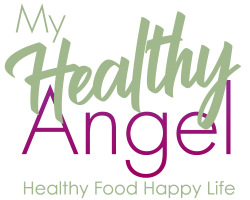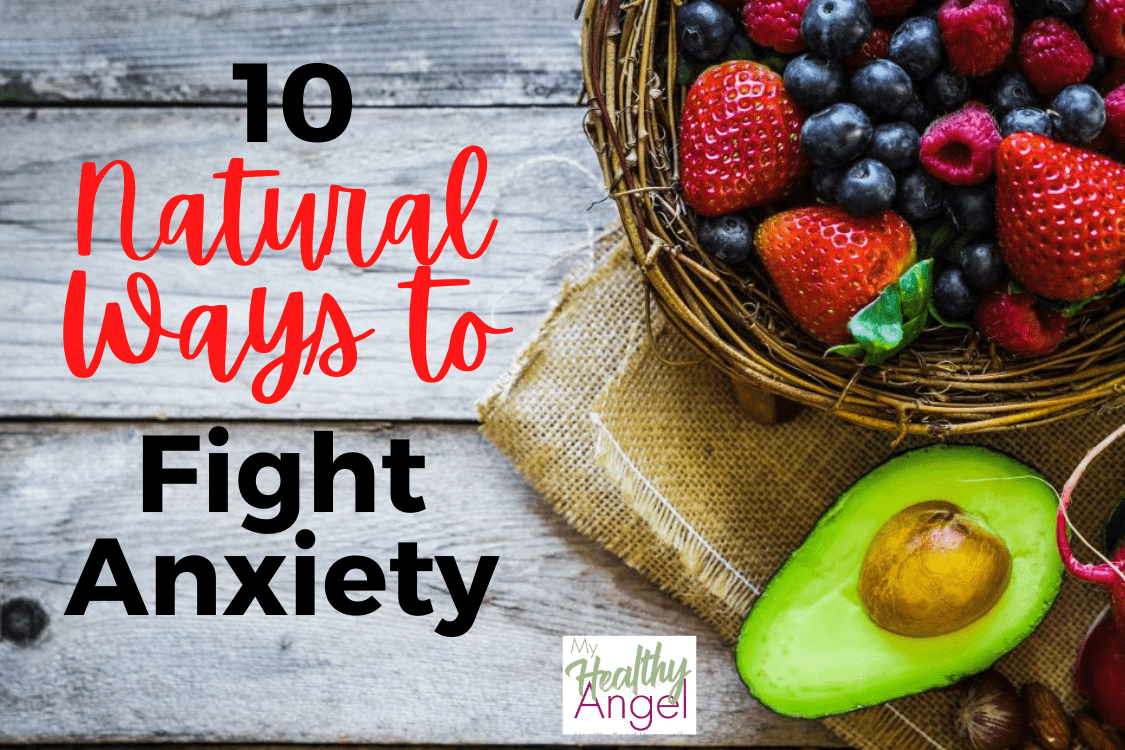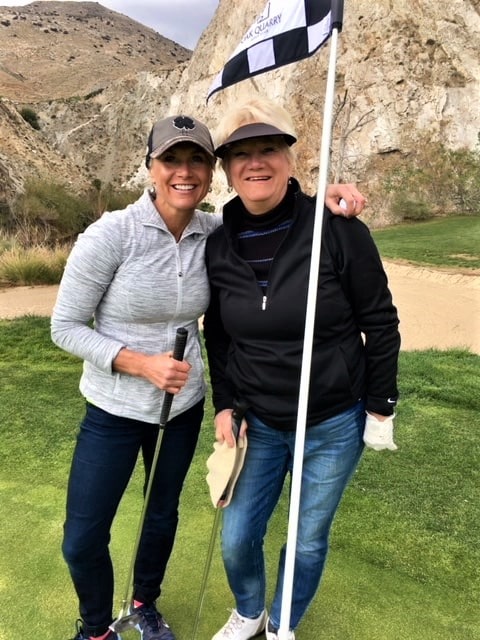Here are some great natural ways to fight anxiety and stress whether or not it’s COVID related. It’s no secret that COVID-19 has had an impact on our stress and anxiety levels. And, it’s not easy to find variety in your days during a quarantine. If you woke up today and felt like it was a scene from the movie Groundhog’s Day, you’re not alone!
These tips should help you find a bit more “skip in your step” and joy to your days.
Establish a Morning Routine
Get up and go to sleep at same time every day. I give myself an hour later to sleep in and stay up on the weekends, otherwise my phone is set for 4:45 am and 9 pm. My early mornings are priceless because it’s the one time I have completely alone with my thoughts. It’s my time to meditate, workout, do devotions and journal, and walk the dog. The most important part is I get a chance to hit reset and set the tone for the day to positive.
Exercise/Movement
The gyms are closed (or they are now in Minnesota) as I write this. Even if they weren’t closed, this applies. Set a daily appointment with yourself to exercise, preferable in the morning. This appointment with yourself is equally or more than your 9 am work meeting because it’s your commitment to wellness. Fit body = Fit brain. Movement is the body’s signal for the brain to wake up. Moving your body also increases your brain’s elasticity (or neuroplasticity) and oxygen flow. Neuroplasticity refers to your brain’s ability to change and adapt.
Exercise can reduce anxiety and depression, improve mood, boost self-esteem, lower stress, and enhance cognitive abilities. Moving the body literally boosts the brain. Here are a five ways movement can benefit your mental health:
Increases brain size. Not only does exercise increase neuroplasticity, it actually can increase the size of the brain. Studies have shown exercise stimulates the release of brain-derived neurotrophic factor, which facilitates the growth of new connections in the brain keeps the existing ones healthy. High-intensity aerobic exercise can increase the volume of the brain areas associated with memory, reasoning, and learning. A little HIIT training, anyone?
Prevents memory loss. Moving increases oxygen and blood circulation throughout the body and the brain. Better circulation translates to elevated mood and cognitive functioning. Studies have shown exercise increases the chemical called brain-derived neurotrophic factor (BDNF), which may help to prevent age-related decline by reducing the deterioration of the brain and prevent some of the memory loss.
Improves sleep. Movement and exercise indirectly impact mental health by improving sleep quality. Physical activity during the day increases the amount of time spent in deep sleep. There are multiple benefits to spending more time in REM or the restorative sleep stage including enhancing your immune system, and helping to manage stress and anxiety.
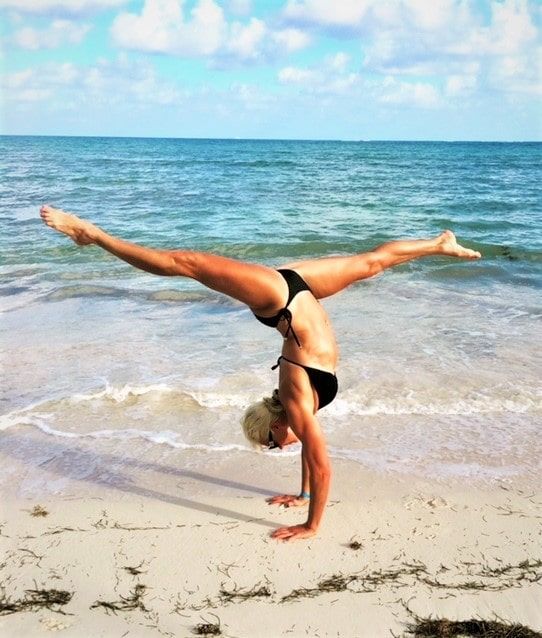
Reduces anxiety and depression. Exercise produces an anti-anxiety effect in the brain. Both aerobic and mindful movement, like yoga, help to activate and replenish GABA, a naturally occurring amino acid that works as a neurotransmitter in the brain to produce a calming effect.
Boosts mood. When we boost our heart rate, our body releases endorphins, resulting in a boost of energy and improved mood. Exercise also helps your body naturally reduce the stress hormone, cortisol.
Walking
Yes, walking is exercise, but it’s so much more. It’s a time to pray, mediate, and be grateful. It’s also a time to brainstorm, reflect, listen to podcasts and tune into nature. There’s no better time than a walk or long run to assess your life and reflect on balance. And best of all, there’s no better time to fight anxiety with your dog than a long walk.
Eat Healthy
There are a number of foods that help reduce anxiety and decrease stress. Here are a couple nutritional concepts on how food can naturally and holistically help with anxiety.
Complex Carbohydrates – are metabolized more slowly and therefore help maintain a more even blood sugar level, which creates a calmer feeling. A great place to start for complex carbohydrates is in fruits and vegetables and even superfoods.
Probiotics – Research shows a large percentage (about 95%) of serotonin receptors are found in the lining of the gut. Because of this, there is some evidence probiotics are effective for treating both anxiety and depression.
Magnesium – Foods naturally rich in magnesium may lead to reducing anxiety and increasing calmness. Foods rich in magnesium include seeds, nuts, legumes and sprouted grains.
Zinc – Foods rich is zinc also contribute to lowering anxiety. Some plant-based zinc-rich foods include cashews, wheat germ, tofu, hemp seeds and lentils.
Asparagus – There’s a natural extract in asparagus with anti-anxiety properties.
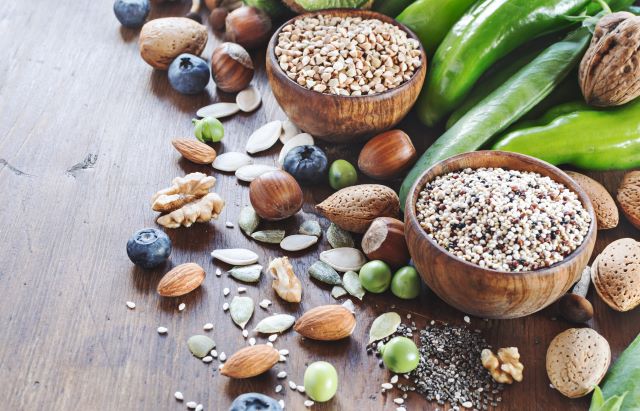
Meditate
It might seem like a challenge to sit still and meditate if it’s new to you or you’re a Type A person, however that’s the whole point of meditation. The point according to Joe Dispenza is to slow down your brain waves and get beyond the thinking and analytical mind. Once we slow down our brain and get into a relaxed state, we can tap into our inner world. That’s the perfect state for getting creative and escaping limitations that seem to exist otherwise. Joe Dispenza’s blog is a great place to introduce yourself to meditation and 5 minutes is all you need!
Get Creative
Getting creative can help you focus and calm your mind. Creativity has even been compared to meditation due to its calming effects on the brain and body. Even something like gardening or sewing releases dopamine, a natural anti-depressant. Creativity reduces anxiety, depression, and stress. So, you like writing and doodling instead? Studies have found that writing helps people manage their negative emotions in a productive way, and painting or drawing helps people express and process traumatic experiences.
Reading
Studies has shown reading decreases blood pressure, lowers heart rate, and can significantly reduce stress. According to a 2009 study at the University of Sussex, stress is reduced up to 68% just by reading. Only six minutes of reading can slow down the heart rate and improve overall health. Reading also calms your mind and decreases stress. It helps you focus on one thing which translates to other areas of your life.
Listening to Music
Studies show that music reduces stress by connecting with your automatic nervous system—brain function, blood pressure, and heartbeat—and the limbic system, where your feelings and emotions live. When you’re wound up, your nervous system releases the stress hormones of adrenaline and cortisol. Listening to music can help you switch off the stress hormones and help you rebalance.
Laughter is the Best Medicine
One of the best ways to fight anxiety and stress is a sense of humor. Laughter not only helps you deal with stress, but also helps improve your overall physical and emotional wellbeing. And besides making your face look better, a smile can help you:
- Bond with others
- Look at things differently (less intensely)
- Diffuse emotional ridden situations
- Keep your relationships strong
Are you looking for ways to get more laughs or improve your sense of humor? Here are some ways to kickstart your giggle:
- Just Smile
- Spend more time with your funny friends
- Watch funny movies or read funny books
- Play “Old-School” Board Games
- Play with your Dog
- Laugh at yourself (this is a must playing golf)
Spend Time with Your Pet
It’s worth elaborating on the mention of this above. Studies have shown interacting with your pet, not only makes you smile but also releases oxytocin, a chemical that promotes a positive mood. Spending time with your pet also often involves other stress and anxiety reducing activities like walking and smiling. Having a pet gives you a purpose, provides love, companionship and hugs. Something we don’t get enough of during these COVID quarantine.
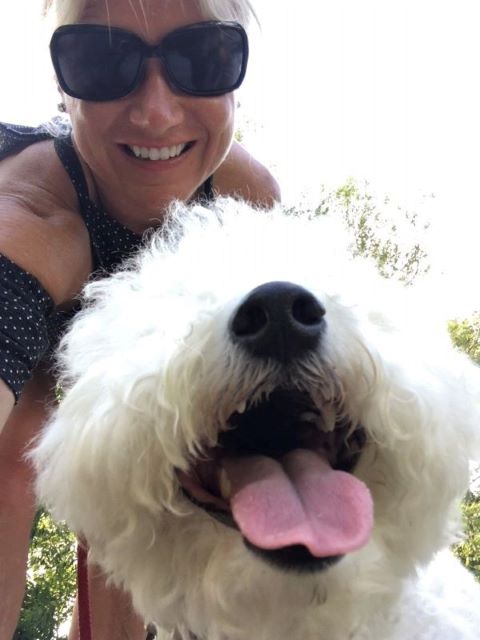
Most of all, give yourself some grace and listen to your mind and body. There’s a time to push and time to back off. Hopefully some of the tips above will help you know yourself, so you figure out if it’s time to push or relax.
Stay Healthy!

